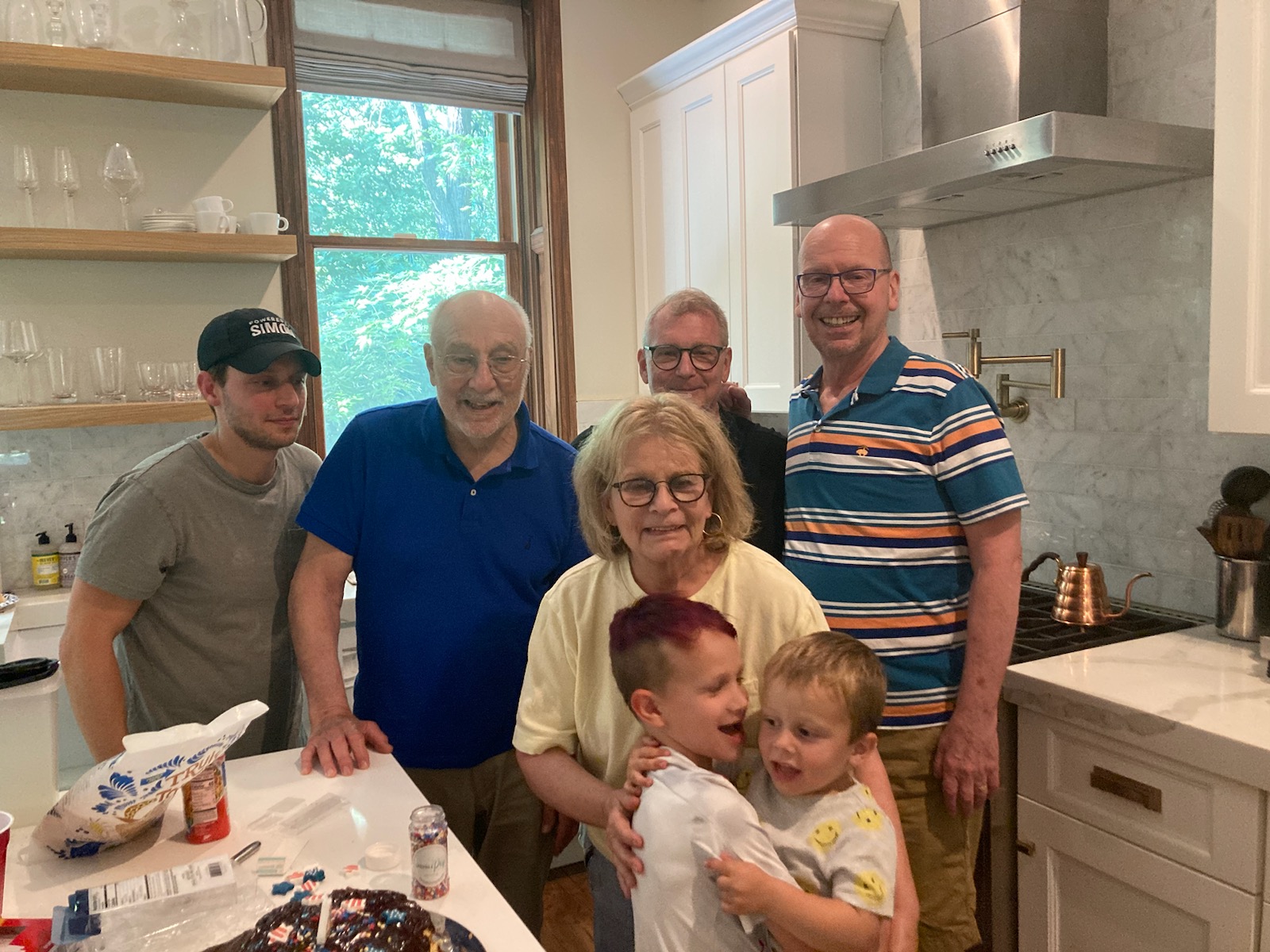
After feeling uncharacteristically unwell rather suddenly, 69-year-old Lloyd Lederkramer and his husband, Tom Brensic, paid a visit to his primary care physician—who immediately alerted them that Lloyd needed to go to a hospital as soon as possible, adamant that even waiting for an ambulance would take too long. From that day forward, everything they knew changed.
As a medical information salesman, Lloyd was familiar with hospitals but hadn’t really been to one as a patient. Presented with this emergency, he recalled the words of a doctor he had met in his travels who suggested that Lloyd should get to the closest hospital if he felt he was having a heart attack, but if he didn't think he was dying NewYork-Presbyterian should be his first stop. Thus Lloyd and Tom made their way from his primary care physician’s office to NewYork-Presbyterian/Columbia University Irving Medical Center. The last thing Lloyd remembers about that day was pulling up to the campus and being admitted into our care.

That is when his nearly three-month-long stay on campus began: Lloyd was one of the thousands of New Yorkers who caught COVID-19 in March 2020. The severity of the illness left Lloyd comatose for 78 days, requiring thorough and consistent monitoring and support from various care teams.
While unconscious, Lloyd suffered two strokes that greatly limited his left side. His heart stopped three times. Lloyd developed gangrene in two of his fingers, and severe back bleeding was an ongoing issue.
Tom also struggled. Precautionary measures prevented him from seeing Lloyd. The lack of information about COVID-19 and the uncertainty around its effects exacerbated his fear and frustration.
Nearing a breaking point, Tom had to take a leave from work. He remained proactive amid the stress, staying in touch with NewYork-Presbyterian staff as much as possible.
After weeks of intense concern, he was finally able to see his husband. The skilled care teams had managed to stabilize Lloyd’s condition, and he had recovered enough to be transferred to a rehabilitation facility. “I cried when I saw him after all that time, firstly because I love him so much and secondly because of the condition he was in,” Tom remembers.

Lloyd steadily relearning how to walk.
Lloyd’s health stabilized further in the following weeks, and eventually he was able to return home after more time in the rehabilitation facility. However, the long-term effects of COVID-19 had fundamentally altered his life. Lloyd had drastically lost nearly 50 pounds. He was unable to walk and struggled with a slew of neurological and physical conditions, including fingers permanently damaged by gangrene, memory loss, and fatigue.
Lloyd’s 78-day experience was a total blur: the most he can recall is waking up one evening after getting a filter placed in his liver. “I was in so much pain, I remember moaning the whole night,” he says. Now that Lloyd was about to return home, he and Tom were grateful but concerned. “I remember getting the news that we could take him home and being like are you sure?" Tom says. “I was so worried for him.”
Tom used that fear to help motivate the reorganization of their home to accommodate his husband’s new needs, such as setting up a hospital bed in the living room. Lloyd was well enough to come home, but his healing journey was still beginning. Each day was a process of resting, relearning, and working steadily to regain better health and mobility—with assistance from home-health caregivers.
These at-home medical professionals were a transformative resource for Lloyd and Tom.

Lloyd and Tom (top right) surrounded by some of their loved ones.
Nearly four years after that first visit, Lloyd’s journey remains a new frontier. His long-term symptoms persist, but his indomitable optimism and the support of care teams at the hospital keep his days rich with humor and healing.
“I’ve always had a ‘say yes’ attitude... not that saying yes means it’ll all work out, but saying yes is an opportunity to go for it,” he says. “I can’t do a lot of what I used to before, but I still put one foot in front of the other every day—what other option do I have?”
Lloyd works with a range of specialists at NewYork-Presbyterian/Columbia, including cardiologists, neurologists, and physical and vestibular therapists, for help with continued memory loss, fatigue, and other conditions, and says he “couldn’t be happier” with his team of caregivers.
“Looking toward the future is deeply precarious. I take nothing for granted,” he says. Since his diagnosis, Lloyd and Tom visited France and Portugal and regularly spend time with their neighbors. Profoundly grateful to all the doctors, nurses, and staff who cared for him and continue to do so, Lloyd was a recent donor to NYP’s 2023 Year-End fundraiser.
“I always believe you get what you give,” he says. “I can’t do that much since I had to retire due to the long-term symptoms that persist, and without funds from donations maybe I would not have received the experimental gel that stopped the back bleeding. It’s almost four years, and I’m still kicking.”
Philanthropy makes success stories like Lloyd's possible and grateful patients are some of NewYork-Presbyterian’s strongest supporters. If you’re interested in sharing your story, please contact the Office of Philanthropy at [email protected].



